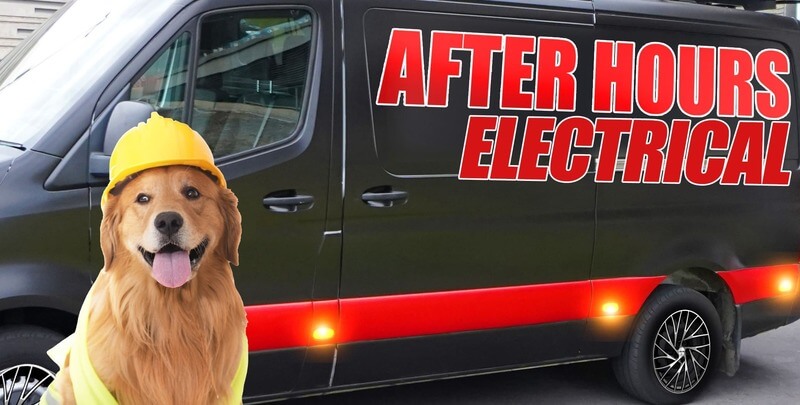How to Prevent Overloaded Circuits

In any home, maintaining electrical safety is crucial for everyone's protection. One common issue many face is overloaded circuits, a problem that can cause serious hazards like electrical fires and damaged appliances. It makes sense, then, that knowing how to prevent overloaded circuits is crucial for maintaining a safe and efficient environment.
Let’s take a look at what causes electrical circuit overload, how to spot the warning signs, and the steps you can take to avoid circuit overloads. From dealing with flickering lights to circuit breaker trips and everything in between, we’ll provide you with practical tips to keep your home safe and your electrical circuits functioning properly.
Understanding Electrical Circuits and Circuit Overloads
So what is an electrical circuit? The short explanation is that electrical circuits are the pathways that deliver power to every device in your home. We’re talking everything from your light switches to your high-power appliances.
Each circuit has a specific capacity which is measured in amps. The circuit’s capacity determines how much power it can safely handle. Having too many appliances connected to the same circuit or a single appliance drawing too much power can cause an electrical overload. This electrical overload triggers your circuit breakers. Tripped circuit breakers cut off the power to stop overheating and potential electrical fire.
Understanding your home’s electrical circuits and how circuit overloads occur is key to maintaining a safe and efficient electrical system.
Signs of an Overloaded Electrical Circuit
Recognising the signs of an overloaded circuit early can help you prevent more serious issues in the future. Here are some common indicators that your circuit might be experiencing electrical overload:
- Flickering or dimming lights: If your lights flicker or dim when you turn on another device, this can indicate the circuit is under too much strain.
- Frequent circuit breaker trips: Frequently tripped circuit breakers suggest a likely electrical overload. They indicate that the dedicated circuit cannot handle the power demand.
- Overheating wires, electrical outlets or switches: Warm or hot power points, switches, or wires are a warning sign of an overloaded circuit that needs immediate attention.
- Unusual odours or scorch marks: A burning smell or visible scorch marks around electrical power points can point to major circuit capacity overload issues.
Awareness of these signs coupled with quick decisive action gives you helps prevent circuit overload and keeps your home’s electrical system safe.

Common Causes of Circuit Overloads
We now know the common signs of circuit overload, but what exactly causes them in the first place? Here are some of the main repeat offenders:
- High-power consumption devices: Major energy-draining appliances like air conditioners and refrigerators use a lot of power and can easily overload an electrical circuit.
- Multiple appliances on one circuit: Plugging multiple high-power electrical devices into the same circuit can exceed its capacity and cause it to overload.
- Faulty electrical wiring: Old or faulty wiring can increase the likelihood of circuit overloads, as it may not be able to handle the electrical load safely.
- Overuse of extension cords and power strips: Relying heavily on these can concentrate too much power demand on a single circuit, leading to overloads.
By identifying these common causes, you can take steps to distribute your electrical load more evenly and prevent overloading circuits in your home.
How to Prevent Electrical Circuit Overloads
Now that we know the common causes, how do we go about preventing circuit overloads?
A good starting point is to install dedicated circuits for those high power consuming appliances, like your air conditioners and washing machines. If each has its own circuit with its own circuit breaker, it stops them from overloading other parts of your electrical system.
It’s also worth upgrading to energy-saving appliances and devices that reduce the overall electrical load on your circuits. Distributing the power demand by spreading all the devices across multiple circuits will avoid concentrating too much power on one. It’s also worth turning off any unused appliances and devices at the power point instead of letting them run on standby power.
Speaking of power points, we suggest avoiding the overuse of power boards and extension cords as these can easily lead to circuit overloads. Best to plug appliances directly into the power point.
When to Call a Licensed Electrician
If you experience frequent circuit overloads or circuit breaker trips, it’s important to seek help from a professional electrical contractor ASAP.
Yes, it can certainly be tempting to go the DIY route and attempt to resolve electrical overloading circuits yourself. Doing so can be extremely dangerous, however, and result in severe safety hazards or even fire. A licensed electrician has the expertise to assess your electrical circuits, identify any underlying issues, and safely carry out repairs to prevent electrical overloads.
For larger projects, like installing dedicated circuits or upgrading your switchboard, professional assistance is essential. Trusting a qualified emergency electrician keeps your home safe, compliant with regulations, and free from electrical hazards.

The Dangers of Ignoring Electrical Overloads
Like that suspicious mole that has suddenly appeared on your arm that you hope will magically go away, or the mysterious clunking sound coming from somewhere in your car, ignoring electrical overloads can lead to serious and potentially dangerous consequences. Here are some of the key risks you should be aware of:
- Fire hazards: Overloaded circuits can lead to overheating wires. These, in turn, significantly increase the risk of electrical fires.
- Damage to appliances and electrical components: Frequent circuit overloads can negatively impact the lifespan and efficiency of your major electrical appliances.
- Power outages and disruptions: Constantly tripping circuit breakers can result in power outages, disrupting your daily life and causing frustration.
- Increased safety hazard risk: Overloaded circuits can cause electrical shocks, posing a serious safety risk to you and your family.
Quickly addressing circuit overloads means you can nip these potential dangers in the bud. You’ll keep your home safe and your electrical system working reliably.
Stay Safe and Prevent Circuit Overloads
Preventing electrical circuit overloads is key to keeping your home’s electrical system safe and running smoothly.
By knowing what causes these overloads and exactly what to look out for, you can take simple, steps to protect your home. Proactive measures like installing dedicated circuits, choosing energy saver appliances, and balancing your power usage can make a big difference. And always remember to call a licensed electrician if you ever notice signs of an overloaded circuit or find your breakers tripping frequently. It’s not a DIY job.
Making electrical safety a top priority is the best way to protect your home from potential fire hazards. It also ensures your electrical system stays efficient for years to come.
Please note: Thanks for reading our blog “How To Prevent Overloaded Circuits”. This information is provided for advice purposes only. Regulations differ from state to state, so please consult your local authorities or an industry professional before proceeding with any work. See After Hours Electrical’s Terms & Conditions here.
